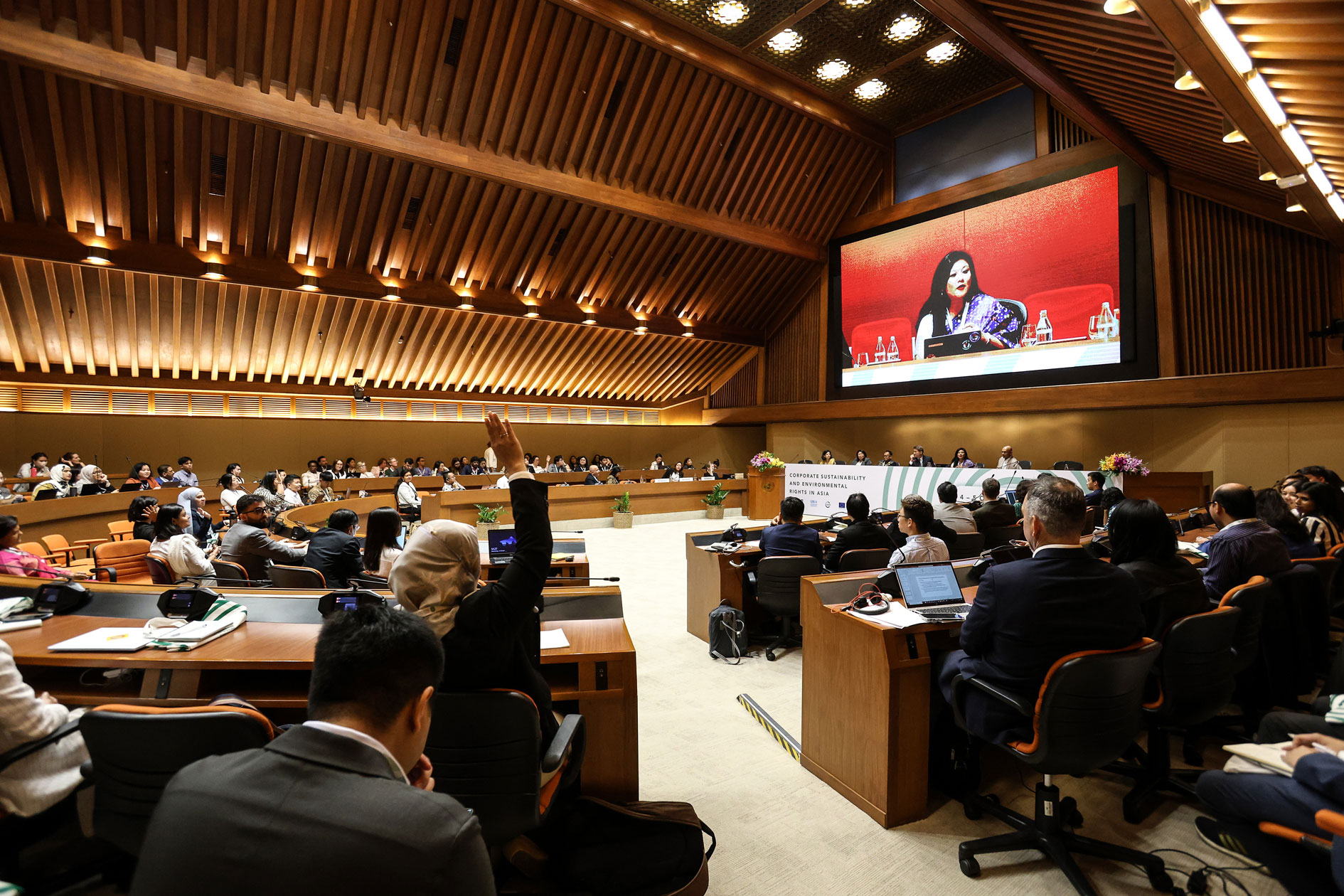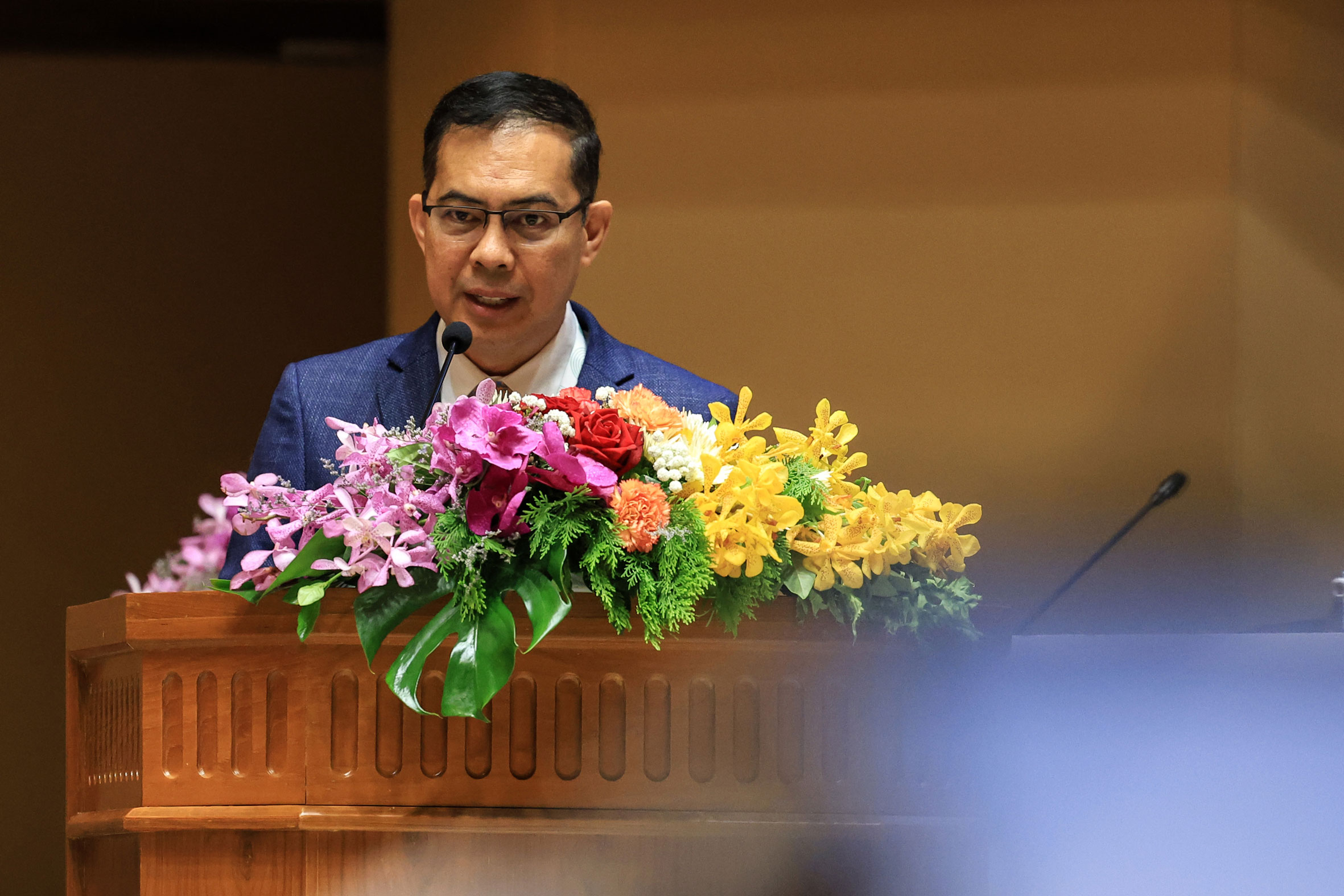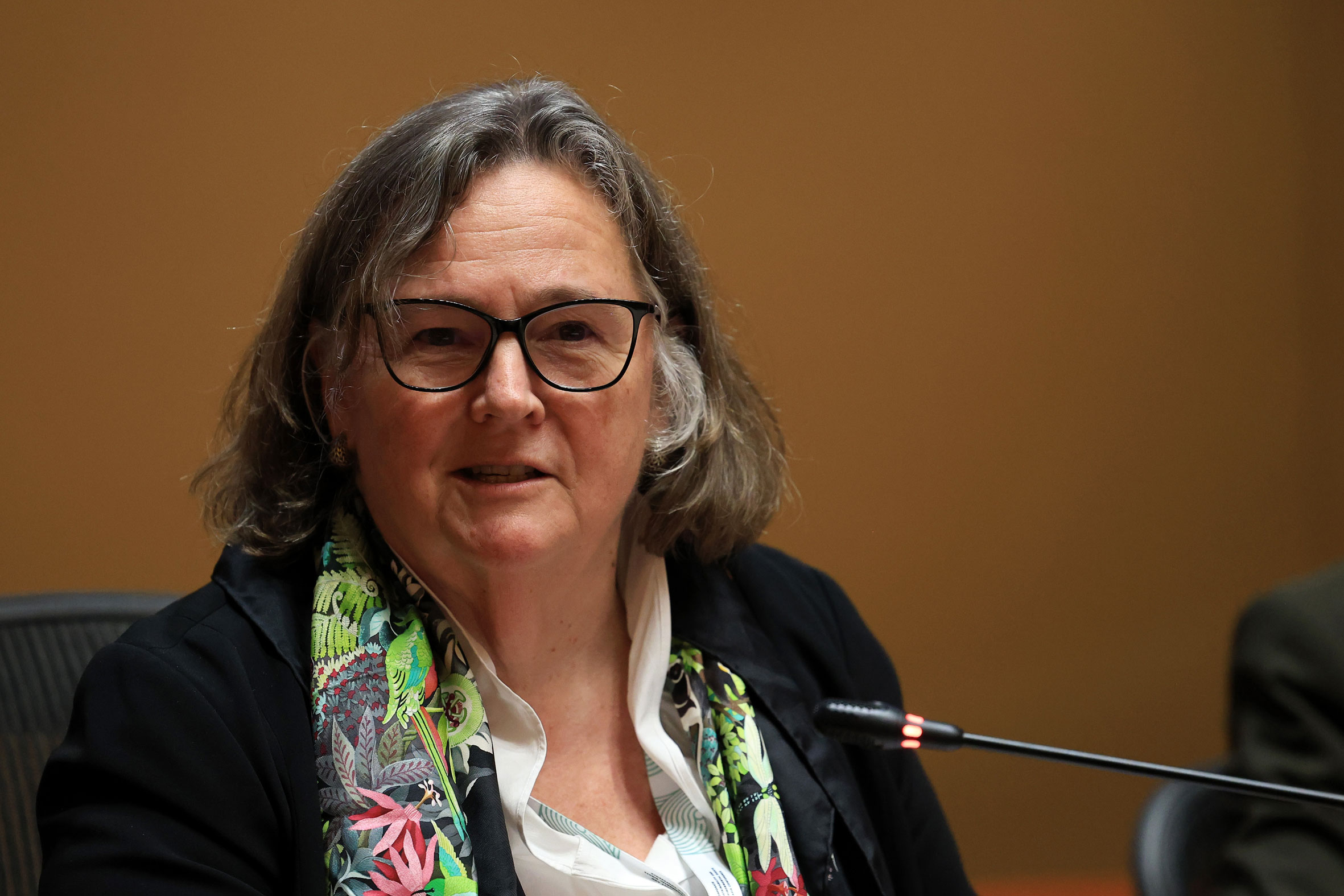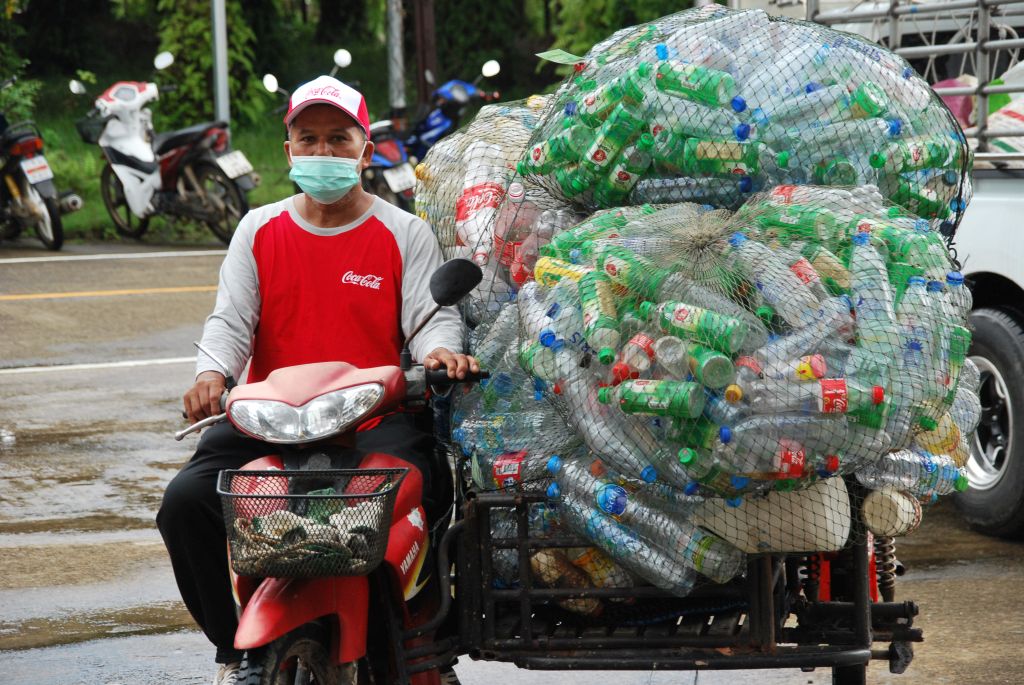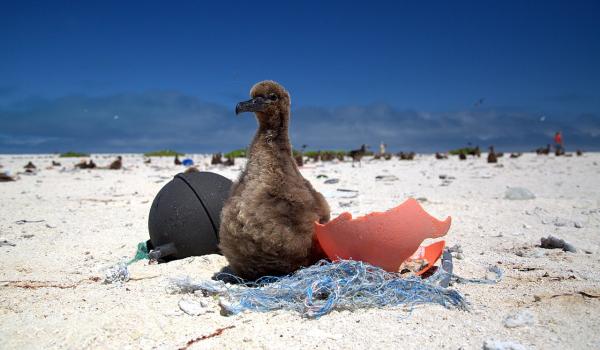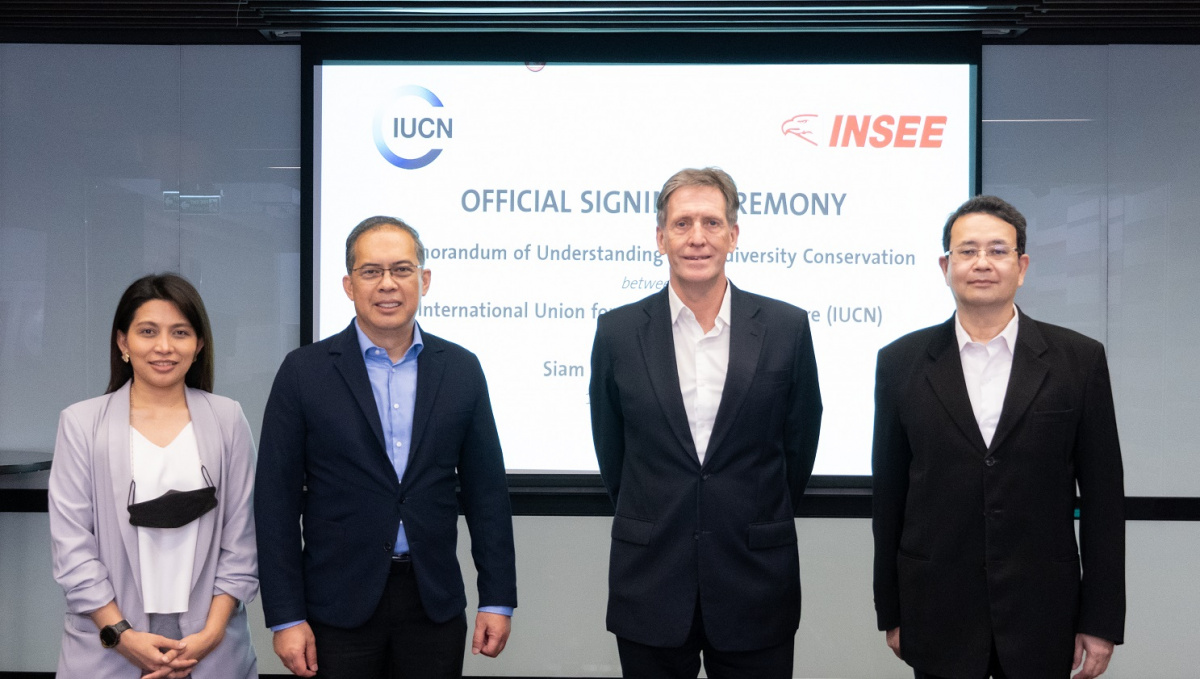Business leaders in Asia commit to Corporate Sustainability and Environmental Rights at inaugural conference organised by IUCN, UNDP and UNEP
Bangkok, 16 October 2023 – Asia’s key business leaders, along with academics and civil society actors convened in Bangkok on 4-5 October for the inaugural Corporate Sustainability and Environmental Rights in Asia Conference (CSERA).
IUCN (International Union for Conservation of Nature) joined the United Nations Development Programme (UNDP) and United Nations Environment Programme (UNEP) in co-organising the conference, which spotlighted the fast-evolving corporate sustainability agenda in Asia including biodiversity impacts and disclosure, environmental and human rights due diligence, decarbonization strategies and carbon markets, and ESG reporting.
Conference insights and accomplishments:
Business leaders, representing half of the conference’s nearly 300 participants, engaged in a series of panel discussions and networking sessions with environmental rights experts, policymakers, youth and civil society representatives.
A lineup of industry pioneers, government officials, and environmental advocates shared insights on the role of business in promoting and respecting the right to a clean, healthy and sustainable environment. Speakers called for climate resilience, biodiversity conservation and sustainable growth trajectories to be pursued while aligning with principles of environmental justice.
Towards sustaining business-led paradigms for a healthy regional ecosystem on environmental rights, participants agreed to work together on:
-
Strengthening professional ties between business leaders and other stakeholders through cross-sectoral, inter-institutional platforms for eco-positive collaboration;
-
Addressing the triple planetary crisis of climate change, biodiversity loss and pollution through business sector’s actions that benefit current and future generations;
-
Promoting due diligence and impact assessment methods focused on: biodiversity and human rights, carbon-neutral blueprints, circular economy business models, ESG benchmarks, green fiscal systems and the role of youth in corporate innovation and sustainable consumption;
-
Utilising data-driven approaches in mapping impact pathways for business investments and actions, such as green financing, to achieve ‘No Net Loss’ or ‘Net Positive Impact’;
-
Learning from exemplary corporate sustainability blueprints that showcase the instrumental role businesses play in fostering harmony between environmental and human rights;
-
Harmonising national, regional and global agendas through international organisations’ support to governments in crafting policies that pivot towards eco-centric rights and sustainability targets. This includes the importance of procedural rights such as access to information and remedy with regard to youth, women, indigenous peoples and rural communities.
Noting that IUCN has long sought to understand “how the business of nature could drive the nature of business,” Dindo Campilan, Regional Director for Asia and Hub Director for Oceania, IUCN, further stated that “Corporate sustainability and environmental rights are the hallmarks of our mission towards a sustainable and resilient future by creating a just world that values and conserves nature.”
Liza Murphy, Head of Conservation Management Assurance at IUCN Headquarters, stressed that “We saw at the conference that all the needed enabling conditions for robust engagement on developing shared solutions to the challenges facing Nature and Society are in place. Partnerships highlighted and discussed at the conference are what we need to support as we face the challenges ahead together.” Moderating a session titled “Biodiversity and Ecosystems: Approaches to Disclosures and Due Diligence”, Liza also introduced how IUCN is in the process of developing certification mechanisms for Nature-based Solutions and the Green List.
Echoing this sentiment, Fatma Ben Fadhl, IUCN's Asia Lead for Business and Finance, and conference coordinator at IUCN, underscored the invaluable partnerships with UNDP and UNEP, emphasising the dawn of a new era of green investments and corporate ecological accountability in Asia to position the region as a world champion for investments in nature conservation to tackle the alarming rate of biodiversity loss.
Sean Lees, Business and Human Rights Specialist of UNDP, underscored the importance of the gathering, noting that "The Corporate Sustainability and Environmental Rights in Asia conference is a first for our region, bringing business and civil society together, in equal measure, for constructive conversations.”
Patricia Kameri-Mbote, Director of the Law Division of UNEP, championed the need for sustained momentum, declaring "This regional conference on Corporate Sustainability and Environmental Rights in Asia provides essential space for business to explore measures to uphold the right to a healthy environment. It is no longer a matter of if this needs to be done but how."
The Regional Conference was held in partnership with the European Union and the Government of Sweden.
For a detailed post-event analysis and updates on subsequent initiatives, please access Corporate Sustainability and Environmental Rights Conference (cserasia.com).
For more information on IUCN’s work with the private sector, please refer to the IUCN publication Engaging industry in nature conservation: case studies from leading companies - Story | IUCN
For press inquiries please contact:
Fatma Ben Fadhl, Senior Programme Officer, IUCN, fatma.benfadhl@iucn.org
About IUCN:
IUCN is a membership Union composed of both government and civil society organisations. It harnesses the experience, resources and reach of its more than 1,400 Member organisations and the input of more than 15,000 experts. IUCN is the global authority on the status of the natural world and the measures needed to safeguard it.
About UNDP:
UNDP works in about 170 countries and territories, helping to eradicate poverty, reduce inequalities and exclusion, and build resilience so countries can sustain progress. As the UN’s development agency, UNDP plays a critical role in helping countries achieve the Sustainable Development Goals.
About UNEP:
The United Nations Environment Programme (UNEP) is the leading global authority on the environment. UNEP’s mission is to inspire, inform, and enable nations and peoples to improve their quality of life without compromising that of future generations.
